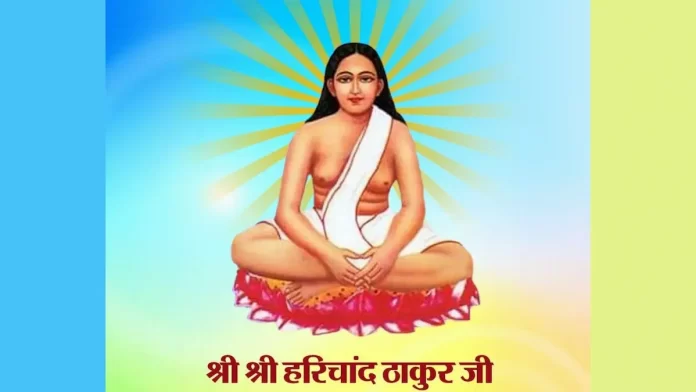Matua is a community of lower caste Hindus in the Bengal region. Also known as Namasudras or the lowest amongst Shudras (lowest class of human beings according to Hindu-Brahmanism), they are presently classified under the Scheduled Caste category under the constitutional scheme.
In the 19th century, the Matua community started a series of socio-religious reform movements and challenged the prevalent Brahmanical social order of Bengal.
One of the most notable Matua reform movements was launched by Harichand Thakur in the late 19th century who proclaimed himself God and criticized Brahmanical rituals.
Harichand Thakur
Harichand Thakur was born to a lower-class peasant family in Orakandi village, Faridpur, Bengal Presidency (now in Bangladesh).
After experiencing Atma darshan or self-realization at an early age, he proclaimed himself as the incarnation of God, born in this world to bring salvation to the downtrodden. He preached his message in the form of the Twelve Commandments.
With the help of his community members, Thakur founded the Matua sect of Namshudras in his ancestral village Orakandi. It later transformed into the Matua Mahasangha as an organized federation of his followers and adherents.
After the Partition of India in 1947, a large number of Matuas migrated to West Bengal. Pramatha Ranjan Thakur a great-grandson of Harichand Thakur founded the town of Thakurnagar which became the new headquarters of the Matua Mahasangha.
Recently Indian Prime Minister Narendra Modi addressed the Matua Dharma Maha Mela 2022 at Shreedham Thakurnagar, Thakurbari, West Bengal on the occasion of the 211th birth anniversary of Shree ShreeHarichand Thakur.
Belief System of Matua Community
Matua sect of Namshudras considers Harichand Thakur as their God and believes in his 12 commandments.
They believe that the congressional chanting of the Thakur’s name in kirtan is the sole means to Mukti or salvation.
The congregational chanting of Lord Hari’s name in congregations is called ‘hariname matuara’ thus giving the sect the current name ‘Matua’.
The teachings of Harichand Thakur stress education as a potent means for the upliftment of society as well as for ending the social conflict.
